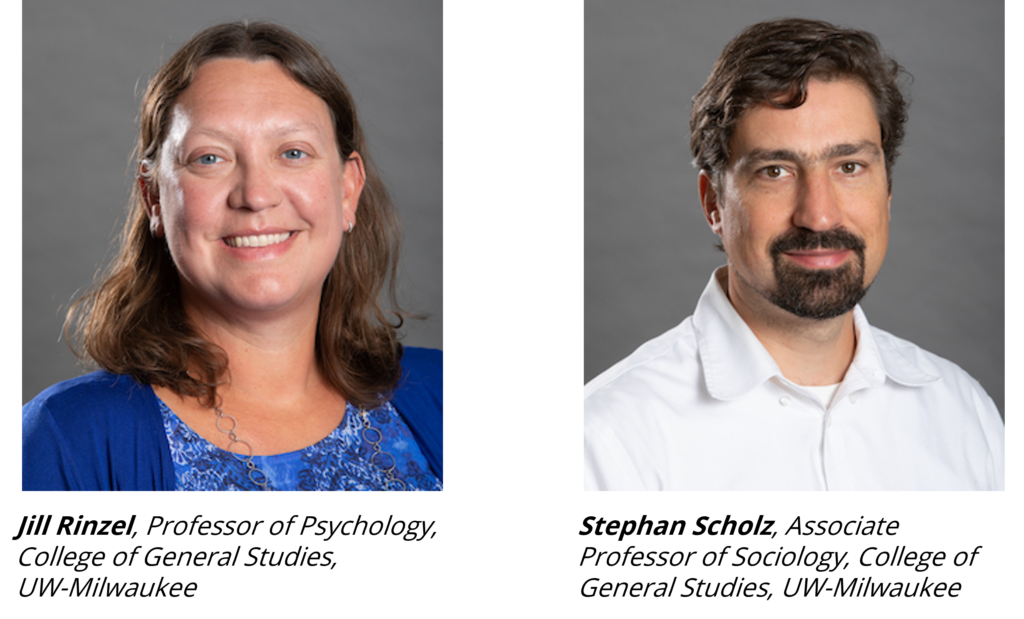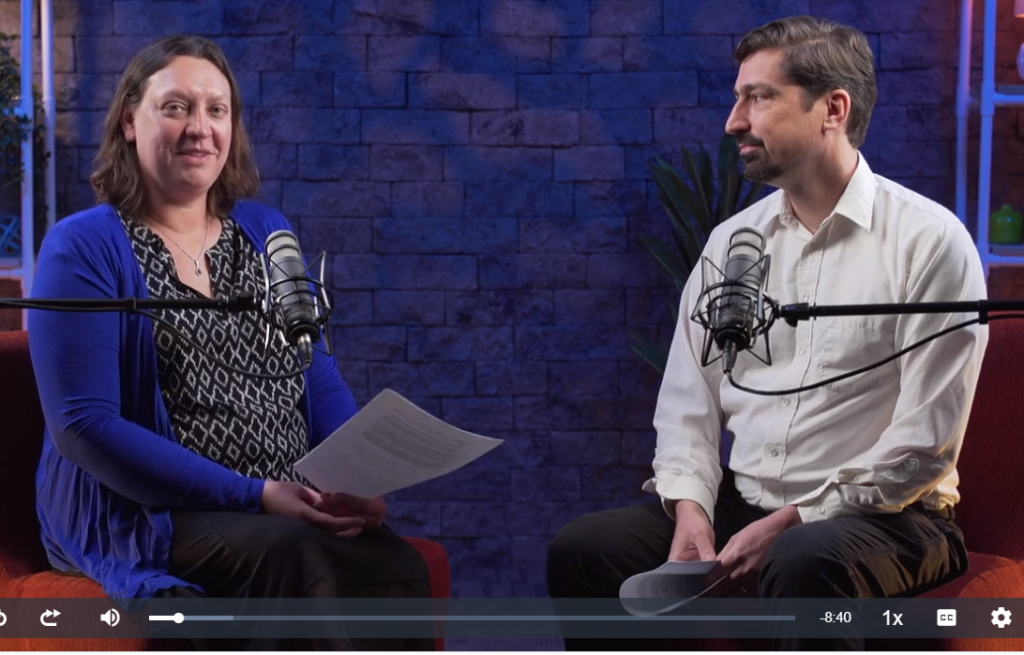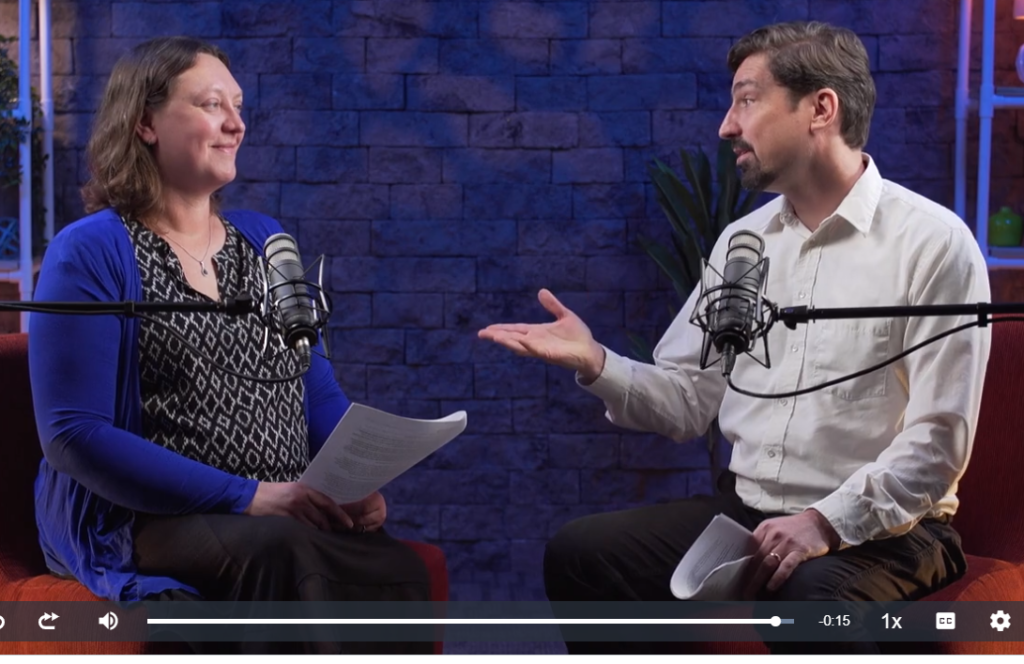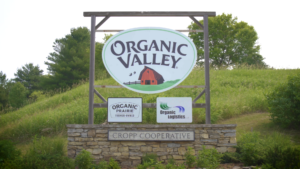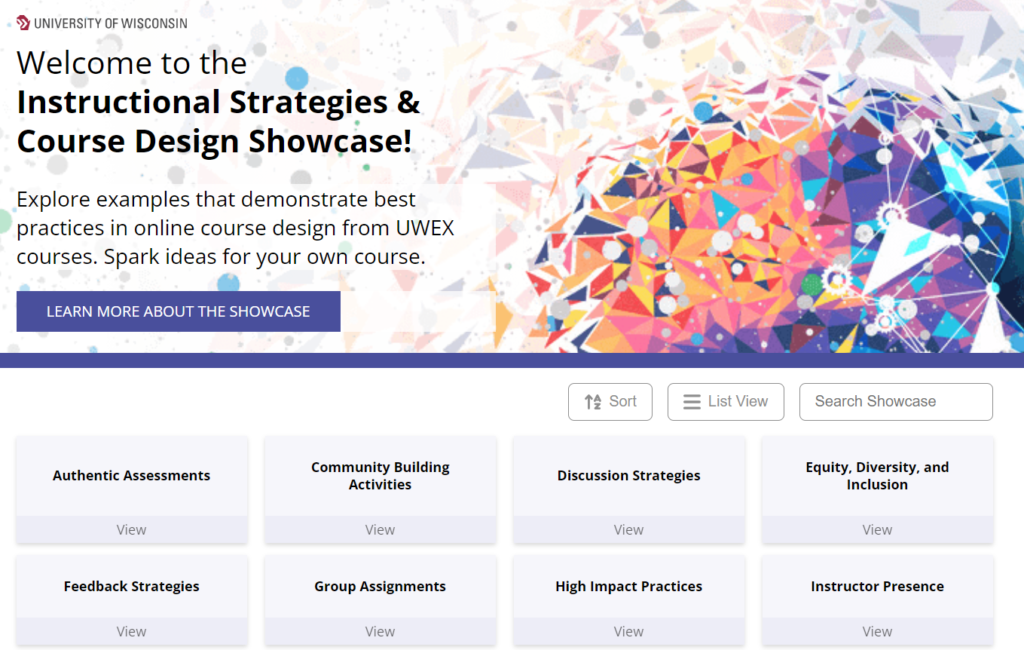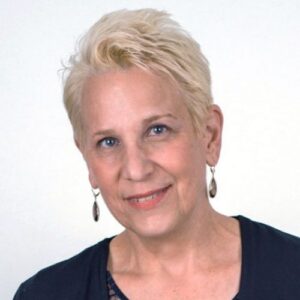Introduction
In their UW Flexible Option course Deviant Minds (CGS INT 281X), Profs. Jill Rinzel and Stephan Scholz produced a series of videos in which they sat down one-on-one to discuss how their fields of psychology and sociology, respectively, understand deviance. Adopting a conversational style, the instructors recorded overview videos in our in-house media studio, engaging in lively discussions about the course material from their complementary perspectives. Read more about their experience using the studio and why they chose a conversational approach to teaching this innovative course.
Interview
Can you tell us how this course came about? It’s quite unique that it is taught by two professors in different fields (psychology and sociology), each sharing their approach to the course topic.
[Stephan] Deviant Minds used to be taught on the Washington County campus by Margaret Hamilton (Psychology) and Sandi Brunette-Hill (Sociology). Students always evaluated that course highly and enjoyed the dual perspective that was offered by two professors from complementary fields. There is actually quite a bit of overlap between psychological social psychology and sociological social psychology. It was a fun challenge for Jill and me to explore these overlaps while also drawing out the differences, such as sociology’s focus on social framing and social construction of deviance.
Can you talk a little about developing the videos in your course? For example, what appealed to you about the idea?
[Stephan] The videos in this course have a conversational format instead of the traditional lecture format. It appealed to me to be able to sit down and have a directed conversation with one of my colleagues about deviance, crime, UFOs, mental health, and innovative approaches to addressing psychopathy, among other topics.
[Jill] The original Washington County Deviant Minds class was run as a discussion-based class. Discussions online tend to take a different flavor and cannot be monitored as closely by instructors (due to the time lag), so I was hoping that the conversational style would be a good way to demonstrate how we can have a conversation from different viewpoints and learn from each other.
What benefits do you think the videos provide students?
[Stephan] Hopefully a conversation between two professors is more engaging for students than a traditional lecture format.
[Jill] I also hope it is more engaging. I also hope that it models productive academic dialogue. We can come at issues from two perspectives and engage in a rich discussion of topics. I hope that this helps us to break away from this idea that professors just speak to students and students are just supposed to absorb the output. I want students to feel like they can actively engage in dialogue, and I hope these videos model how to do that.
Do you think the media has impacted student performance or engagement?
[Stephan] This is a great question because I’m not sure how to answer it. My hope is that the format has a positive impact but my concern is that critical information is not being conveyed as efficiently and effectively.
[Jill] This is hard to answer. I do see students reference the videos in their work in the class. I’m almost wondering if it would be helpful to add in some questions about the videos in a future revision of the course. This might help to remind students what they should have gained by watching it and help to focus their recall of information.
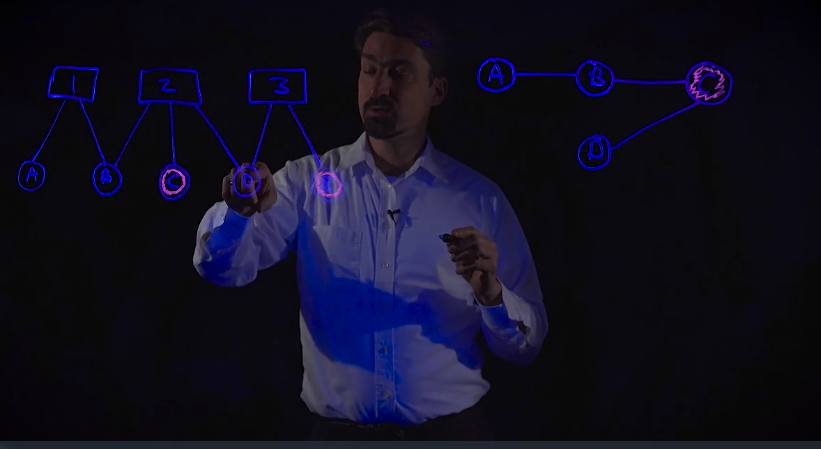
How do you feel the videos build connection and community in the course? How does it help you connect with your students?
[Stephan] The videos allow me to present myself in a more casual and conversational manner, which is hopefully more relatable for the students.
[Jill] Yes, I think that it does make us more relatable and that it makes the topic more relatable. This course has a wide variety of resources, and I think the videos help to tie some of those ideas together.
What was your experience filming in the studio? How did you prepare to film the course introduction and lesson overview videos?
[Stephan] Filming in the studio is highly recommended. The support staff were very helpful. The studio was nicely staged with soft lighting, and we didn’t have to deal with recording or editing. We prepared for these discussions by outlining the topics ahead of time.
[Jill] I agree, filming in the studio was really nice. We were able to just worry about the content and not worry about the other components of recording and the end product was much better than anything we could have done on our own. We prepared an outline and made sure we highlighted key concepts, points, or terms we wanted to cover. For the individual lesson video I did, I did write out a script, which was helpful when I was on my own.
What advice would you have for other faculty who may want to use the studio to create videos for their courses?
[Stephan] I would recommend preparing a detailed outline for each topic, so the conversation remains focused and informative.
[Jill] I would recommend using the studio and preparing before you go. If you have ideas for graphics, let them know and they can add in many different options to help make the videos even more engaging.
